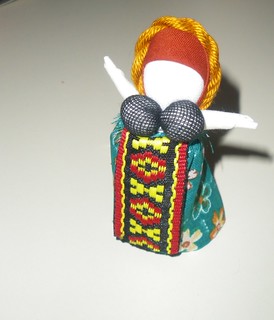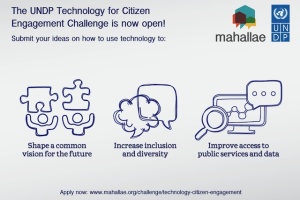 More than a week has gone by since I left Kyiv. The photo at right sums up how I felt most of the time whilst there.
More than a week has gone by since I left Kyiv. The photo at right sums up how I felt most of the time whilst there.
Now, I’m in Germany, fighting a cold, and wondering if I dreamed that whole nine-week Ukrainian adventure.
What did I do in August and September 2014 for the United Nations in Ukraine? I tried to remember everything:
- Drafted (and re-drafted and re-drafted) the revised strategy for the UN’s work in Ukraine, per the drastic change in circumstances in the country earlier in 2014 (this took up probably 25% of my entire work time in Kyiv).
- Edited and rewrote more document proposals, press releases, web pages, meeting reports and field reports than I care to try to list (this took up probably 25% of my entire work time in Kyiv).
- Drafted a marketing plan for a United Nations Development Programme (UNDP) project focused on getting people to care about and take action regarding climate change.
- Drafted a strategy to leverage most of the UN days in some way via social media and, in some cases, traditional means (onsite events, press tours, etc.).
- Live-tweeted UNDP Ukraine Social Good #inno4dev / #2030now summit, highlighting the many excellent tech-for-good initiatives happening all over Ukraine, and blogged about how future events might be more interactive and produce something by the end of the day (more than knowledge-sharing). I also blogged about how I was part of a group at UN Volunteers HQ back at the start of the century that tried to do many of the things now, at last, being embraced by UNDP, and got quite a bit of attention thrown UN Ukraine’s way as a result.
- Invented the #uatech4good tag, which I’m hoping will catch on as a social media tag for any tech4good initiative in Ukraine, including those with no UN-affiliation.
- Mapped all of the various UN agencies and programs in Ukraine with regard to their Web sites, Facebook pages, Twitter accounts, Flickr accounts and any other social media profiles they had, and created a page on the UN web site where anyone could find such (it also includes suggestions on where to find further info regarding the UN’s work in Ukraine using various UN HQ accounts).
- Did research and then drafted recommendations for how various UN agencies, particularly UNDP, could use social media to promote respect, tolerance and perhaps even reconciliation in areas of Ukraine currently in conflict.
- Live-tweeted UNDP Ukraine’s Social Good #inno4dev / #2030now summit, highlighting the many excellent tech-for-good initiatives happening all over Ukraine.
- Helped to develop some simple ways to leverage the Humans of New York focus on Ukraine.
- Advised on how to deal with some specific negative activities on both social and traditional media targeted at the UN.
- Did trainings on using Twitter for all UN communications staff, and another for just UNDP staff and another just for UNICEF staff, tailoring those last two trainings to those different agencies specifically.
- Prepared a guide for the UN Volunteers office in Ukraine on how to use Twitter and Facebook to better publicize their activities to not only external audiences, but also to those they are working with and their colleagues within various UN agencies in Ukraine (never forget that social media sometimes reaches someone in the office next door with news they don’t know about your initiative).
- Wished for a better word for reconciliation
- Wished for more web sites like this Ukrainian journalism student project, Stopfake.org
- Lamented with my Crimean Tatar co-worker the lack of sustainability and evaluations of hacksforgood/appsforgood and any other projects launched during a hackathon, and our lamentations inspired this blog (I mention his ethnicity only because other references to such all seem to be only about how they are internally-displaced people and frequently oppressed – which is true, but many also happen to be very knowledgable, experienced professionals – just like anyone).
- Advised on an app to help citizens report infrastructure issues to the government.
- Researched whether or not our offices might need a policy re: editing Wikipedia (such editing is easily monitored by citizen activists and even some hostile “bodies”, and conflict of interest editing can turn into a PR nightmare; I doubt anyone is editing Wikipedia from the office, but this is a VERY tech savvy country – I was trying to think preventatively).
- Had various ideas bounced off of me by various staff for events, announcements, activities, speeches, using Twitter, etc.
- Participated in department meetings (though, believe it or not, I would have liked to have been a part of even more).
- Created new text for the UN Volunteers in Ukraine page regarding online volunteering and volunteering NOT as a UN Volunteer.
- Asked a lot of questions, listened, took a lot of notes, read lots and lots of information so I could write about various topics when called upon, read and responded to a lot of emails…
- Tried to kill my boss with roses.
- Took care of our field security guy’s puppy for a few days.
- Bothered my co-workers regarding my overwhelming desire for mashed potatoes.
I bring up the mashed potatoes because, while very few people liked or commented on Facebook regarding my “I want mashed potatoes” status update, several co-workers did in-person; it’s how I realized just how much people were reading what I posted online, and what a poor judge of readership the number of “likes” is.
Did anything change as a result of my time in Ukraine? I’m not sure. I think a couple of people now realize the power of social media and it seems that the changes in their use of such while I was there is continuing after I’m gone. I think I helped to raise the profile, to a certain degree, of what various UN agencies are doing in Ukraine, and helped to reinforce that those agency reps are essential to have at the table when talking about addressing the critical needs of the country. But I wish I could have had more time to get more cross-fertilization happening regarding communications and to get more people pro-active instead of being so reactive and passive when it comes to communications, so that when one initiative launches something major, all of the UN communications staff at different initiatives see it and share it with their networks, and that no one waits to hear about news – they go out online and look for it. I wish I could have done a workshop on writing in plain English. I wish I could have worked with a few people one-on-one more. I wish I could have gotten everyone better using Flickr. I wish I could have done an analysis of current press relations.
I also really wish I could have done a workshop on the UN’s Online Volunteering service. I’m sorry to say that no one in the UN Volunteers office in Ukraine really knew what it was or why to use it. It wasn’t a part of my mandate to talk about it to anyone – but I tried anyway, specifically with UNV folks, squeezed in among several other topics. I would not only like to see UN Volunteers in Ukraine using the OV service, I would not only like to see all of the UN programs in Ukraine looking for ways to use the service to engage with online volunteers regarding their work, I would also love to see UNDP Ukraine launch, or help to launch, a Ukrainian and Russian-language version of the online volunteering site focused exclusively on Ukraine. Ukraine is still afire with civic engagement desires – so many civil society initiatives there are using the Internet to engage and support volunteers, without ever having heard the term virtual volunteering. Imagine what more could be done with Ukraine’s own online volunteering service for both Ukraine-based and Ukraine-focused civil society organizations and non-governmental organizations (NGOs).
Oh well, I did what I did, and I think I did what most needed to be done.
What did I learn? Oh, that’s a whole ‘nother blog, thrice as long. I learned SO much, and re-learned so much. I think that’s what I’ll reflect on these next two weeks.
So, that was my work time in Ukraine, and my latest adventure with the United Nations, an organization that frustrates me greatly often times but, even so, I still believe is humanity’s best hope for getting every person equal access to education, safety, care for basic needs, a healthy environment, economic choices, and life choices, and for keeping us from killing each other and destroying everything. I’m proud to be a part of the United Nations, and while I hope this isn’t my last gig with the UN, if it is, wow, what a high note to end on!
Also see:
My photos from Ukraine (Kyiv and Korosten)
My photos from in and around Chornobyl (Chernobyl)
How to Pursue a Career with the United Nations or Other International Humanitarian or Development Organizations, Including Non-Governmental Organizations (NGOs)
Reality Check: Volunteering Abroad / Internationally















